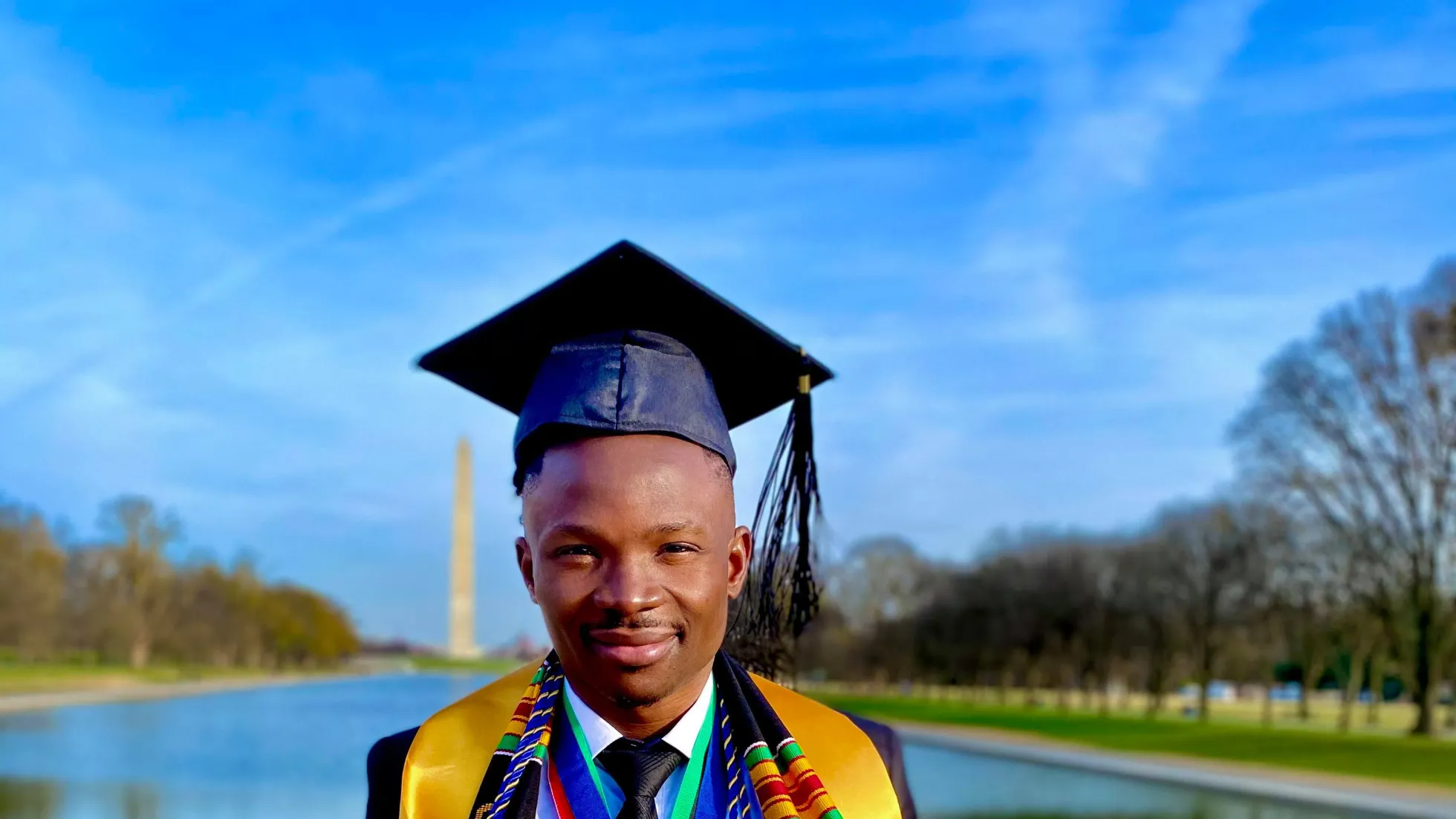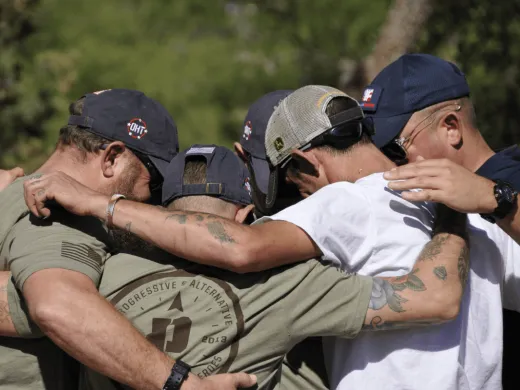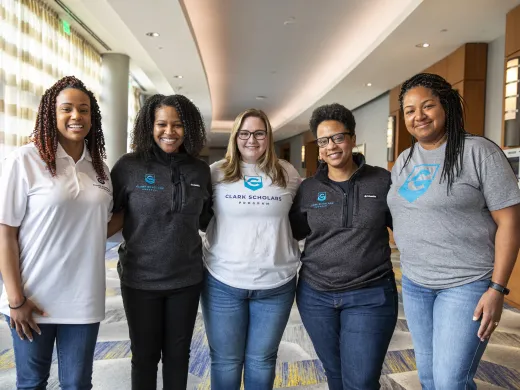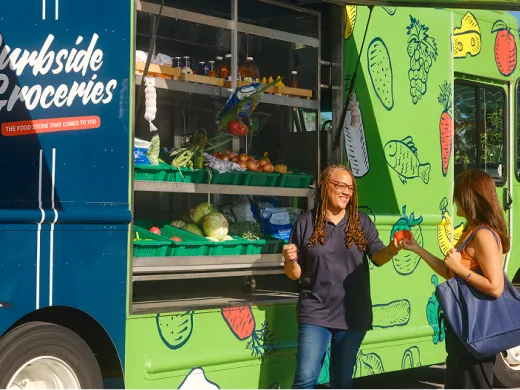Grantee Case Study
Guiding Young Adults from Short-Term Credential Programs to Rewarding Careers
with New Futures
Across the DC region, New Futures is uniquely positioned to expand opportunities for young adults pursuing shorter-term educational credentials as the first step to achieving their professional aspirations. Through a combination of scholarships, academic advising, career coaching and a supportive professional network, the organization provides thoughtful, in-depth programming to hundreds of individuals every year. To support this approach, the Clark Foundation's investment helped strengthen New Futures' organizational capacity to serve more students as they enter fulfilling careers and achieve financial security.

Guiding Young Adults From Short-Term Credential Programs to Rewarding Careers | Clark Foundation
Although numerous organizations support students pursuing a bachelor’s degree, few specifically focus on the growing number of young adults who are pursuing shorter-term credential programs to prepare themselves to enter the workforce. To address this gap in the Washington, DC region, New Futures provides young adults, ages 17 to 29, with a comprehensive array of programming including scholarships, academic advising, personalized career coaching and skill-building workshops to help them obtain the education and skills they need to embark on a rewarding career path.
“New Futures is unique in our approach to ending generational poverty in the Washington, DC region. Our emphasis on these specific credentials allows for quicker workforce entry, which is critical for students who need to achieve financial stability sooner rather than later,” said CEO Sherrod Williams.
While the Clark Foundation invested in numerous college persistence programs, its approach acknowledged that four-year degrees are not the only avenue for students to pursue their passions. “Not everyone goes to college full-time and uninterrupted right after high school. There are many young adults in our region who have competing priorities and responsibilities,” said Danielle Hamberger, the Foundation’s Director of DC Education Initiatives. “New Futures does a great job of highlighting the variety of paths to one’s career of choice, and focuses on supporting students where they are in their educational or professional journey.”
With a $1.5 million investment in 2020, the Clark Foundation helped New Futures build its organizational capacity to reach more students, expand its coaching and career advising services, diversify its workshop offerings, and offer ongoing alumni support, all toward the goal of removing barriers for underserved students looking to enter in-demand job markets and find financial security.
Evolving to Meet Unique Scholar Needs
New Futures was founded in 1999 to offer scholarships for low-income students – who it calls Scholars – pursuing short-term post-secondary credentials. Over the next 20 years, the organization built out a program model that considered the socioeconomic challenges its Scholars face and measured success in how many of them obtained their credentials, pursued additional educational opportunities, found financially stabilizing careers, and climbed career ladders. This model also took into account the flexibility and longer timelines that many of the Scholars need as they work and are often caring for children or other family members while pursuing their studies.
To ensure that their Scholars’ pursuits could lead to fulfilling, well-paying careers, New Futures homed in on the fastest-growing careers in the DC region that are attainable with short-term credentials, and prioritized building bridges to those industries. New Futures built partnerships with regional employers, which offer shadow days, insights into hiring trends and recommended skills, and have staff who volunteer as mentors and connect Scholars to internships.
By 2019, the New Futures’ leadership knew it had an effective approach and focused on how to expand its reach and scope. “We wanted to continue to formalize our program, make it more sophisticated and grow it right. We were a team of five or six at the time, so thinking about scaling was exciting but a bit overwhelming,” said Griselda Macias, New Futures’ Director of Strategic Partnerships and Community Impact. “We knew we needed not only financial support but a strong partner able to invest in us so that we could amplify our impact, serve more students, scale our model, and hire more staff so that we could scale appropriately.”
With that focus, New Futures presented the Clark Foundation with a vision for increasing the organization’s internal capacity, reaching more students and providing those students with a more holistic set of supports. “We were excited to invest in an organization that supported young adults pursuing their education starting with short-term credentials and associates degrees. New Futures listened and learned from their Scholars about their needs in addition to scholarship dollars,” Hamberger said. “It was a new path for them, and the organization had a plan of action. When we learned they wanted to add advising and holistic programming, we knew that those were important pieces.”
Helping Scholars Realize Their Potential
To implement this new vision, New Futures hired advisors who could cultivate close and trusting relationships with the Scholars, offering them a blend of traditional academic advising with career and life coaching. Macias noted that many of these staff members have experienced similar situations to those faced by the Scholars and are able to empathize and connect on a personal level as a result. “Our proactive advising approach is all about meeting our Scholars where they are and building trust,” Macias said. “It’s not just about school and grades—we ask about what excites them, how they’re balancing work and classes, and what’s happening in their lives. It’s about seeing their humanity and them as whole individuals, and letting them know we value and support them in every aspect of their journey.”
Part of the advising strategy focuses on developing so-called “soft skills” such as communication, critical thinking and adaptability, crucial for long-term success in any career. “Growing the program meant not just numbers, but also our offerings. Could we provide a more diverse offering of workshops, of experiences, so that our students were building social capital for careers that they were looking to enter?” Macias remarked. “We want to ensure they have the right skills to confidently apply and step into opportunities when they arise.”
“The Clark grant allowed us to focus on the second part of our mission. We had developed expertise about educational opportunities, but the grant allowed us to build programming for rewarding careers,” Williams said. “We could invest in research and development about best practices for career preparation and career growth, integrate it into the program, and then scale it to set students up for success. We were excited to have a partner who would invest in us and enable us to really launch this fully and thoughtfully.”
With the Clark Foundation investment, New Futures’ grew from serving 590 students in 2019 to 944 in 2024. In addition, Scholar graduates have earned 488 degrees and certificates. But New Futures’ efforts, Hamberger believes, will extend far beyond the number of Scholars who graduate. “New Futures is helping so many young adults realize their potential at critical periods of their lives. Their alumni are building their own lives, and I believe that our region will be stronger for having New Futures alumni working and living here, and contributing to their communities.”
One of the ways in which New Futures measures its success is by using the Consumer Financial Protection Bureau’s Financial Well-Being Scale, a tool that assesses financial well-being based on a person’s ability to meet obligations, feel secure about their financial future, and make choices that allow them to enjoy life. “We aim for our Scholars to be in the mid-to-high well-being range, and the tool shows we are on target,” Williams said. In the most recent New Futures alumni survey, 76% stated that they met this target, scoring on average 10 points higher than the national average for their age group.
A Scholar’s Journey Leads to a Rewarding Career
Another example of New Futures’ impact can be seen in the success story of Ramiro Forty, who joined New Futures as a Scholar in 2017, and now works as a program scholar advisor with the organization. “Ramiro maximized the support and opportunities that New Futures offered, and he persevered and thrived throughout it all,” Macias said. “Our Scholars connect with him because he shares their lived experiences—he understands their challenges, their doubts, and knows exactly how to inspire them to keep pushing forward.”
Forty acknowledged that New Futures’ support, both financial and advising, was essential to continuing and finishing his academic journey. “The advising I received as a student is really what kept me in school, what kept me pushing, what kept me motivated. I’m super blessed and grateful for the relationships I built with my advisors, and for the support they gave me,” Forty said.
Forty went on to the University of Maryland Global Campus to pursue a bachelor’s degree in communication studies, with an additional scholarship from New Futures. After graduating in December 2023, he joined New Futures’ staff, where he draws on his own experiences to help students persevere. “Everybody deserves an opportunity. Just because you can’t afford to go to school doesn’t mean you shouldn’t be able to go. We’re here to support students and remind them of their goals, and tell them not to give up.”
Championing Shorter-Term Credentials
While New Futures has increased its capacity to serve more Scholars, the organization remains attentive to how it will continue to grow moving forward. One way is by maintaining relationships with its Scholars that will endure after they graduate from the program. “Beyond degree and certification attainment and job placement, New Futures is building a lifelong community of Scholars who can rely on each other as they progress through their careers and lives,” Hamberger remarked. By engaging its growing alumni network through continuous professional development opportunities, New Futures hopes this community will not only help alumni advance in their careers but also encourage them to mentor the next generation of Scholars.
Additionally, New Futures seeks to broaden its regional economic impact by building a more robust partnership network with local employers while continuing to inform policy and educational practices to elevate the status of shorter-term credentials. “I want New Futures to be the champion of short-term credentials in the greater Washington region, setting the standard for college access and success programs,” Williams said. “As we look ahead, I am confident that New Futures will continue to shape the economic future of our communities by expanding opportunities for Scholars and driving change alongside our dedicated ecosystem of partners.”
Additional Case Studies
View All
A Unique Vision to Transform Mental Health Approaches for Veterans and First Responders

